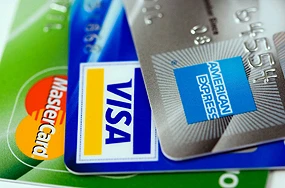
The Dodd-Frank Wall Street Reform and Consumer Protection Act (H.R. 4173) was signed into law this summer, and includes important provisions for green-industry businesses accepting credit and debit cards:
New rule maker—the Federal Reserve. The Federal Reserve is charged with issuing new regulations within nine months of enactment, and taking effect three months thereafter, on whether debit-card interchange rates are “reasonable and proportional to the cost incurred by the issuer with respect to the transaction.”
Discounting. Credit-card companies cannot restrict the ability of businesses to offer discounts for payments made by cash, checks, debit cards or credit cards. However, discounts may not differentiate between card issuers or networks.
Minimums. Businesses are permitted to set a minimum transaction amount of up to $10 for credit card transactions, with authority given to the Federal Reserve to increase this amount.
Network fees. Network fees charged by credit-card companies to businesses are exempted from the Fed regulations. The Federal Reserve, however, is given authority to ensure that a network does not attempt to circumvent the new regulations by creating new fees to compensate issuers (directly or indirectly) for debit card transactions. As part of the rulemaking, the Federal Reserve is to consider the functional similarity between debit transactions and checks, which clear at par, and the incremental cost incurred by the issuer in the authorization, clearance or settlement of transactions.
Fraud adjustment. The Federal Reserve can increase debit card interchange rates on a per issuer basis if the issuer takes steps to reduce fraud, including through implementation of cost-effective fraud prevention technology.
Exemption. Banks, credit unions and thrifts with assets of less than $10 billion (not adjusted for inflation) are exempted from the Fed regulations. Debit cards and general-use prepaid cards issued by federal, state, or local government-administered payment programs are exempted from the Federal Reserve regulations, as are all reloadable prepaid cards not tied to an individual’s demand deposit account.
Exclusivity arrangements. One year after enactment, the Federal Reserve is charged with prescribing rules to ensure that payment card networks must provide businesses with at least two network “bugs” with which to route transactions. The regulations are also required to prohibit networks from erecting routing restrictions. This so-called multi-bug provision was added to the bill through the agreement reached by conferees.
American Nursery & Landscape Association worked closely with the Retail Industry Leaders Association and others to advance these provisions.

Explore the September 2010 Issue
Check out more from this issue and find your next story to read.
Latest from Garden Center
- America in Bloom announces 2026 program launch and celebrates 25 years of growing vibrant communities
- AmericanHort launches HortCred to advance skills development in the green industry
- Oasis Grower Solutions announces new northeast territory sales manager
- Amanda Solliday named senior manager of Sustainabloom
- New McCarthy-Family Flowers Legacy Fund supports multi-generational retail florists
- Monrovia releases new retail program, Landscape Legends, to mark 100th anniversary
- USDA to conduct 2025 Organic Survey
- Save the date for the 78th Santa Barbara International Orchid Show





